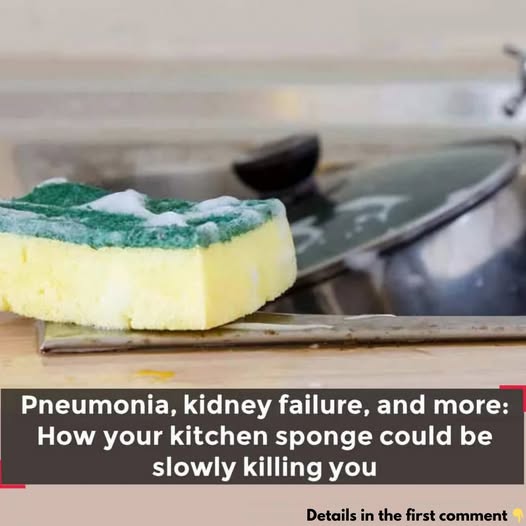
Your kitchen sponge may seem like an innocent cleaning tool, but it’s a hotbed for harmful bacteria, putting your health at risk. This common household item, used for scrubbing dishes and wiping surfaces, breeds germs. Let’s see how it endangers your health and what to do to reduce risks.
Did you know your kitchen sponge is dirtier than your toilet seat? Research shows it harbors more bacteria. Food residue, moisture, and lack of airflow make it perfect for harmful microbes like Salmonella and E. coli.
Alarming Facts
- A single sponge can hold billions of bacteria, more than the world’s population.
- These bacteria can cause foodborne illnesses with symptoms like diarrhea, vomiting, and abdominal pain.
Microwaving or boiling sponges won’t make them germ – free. They can reduce bacteria, but not eliminate all. Sometimes, it even makes things worse.
Superbacteria Risk
- Cleaning can kill weak bacteria, leaving behind stronger, resistant strains.
- These tough microbes quickly recolonize the sponge, making cleaning efforts useless.
Each time you use a sponge, you might spread bacteria instead of cleaning. When you scrub with a contaminated sponge, you transfer germs, creating a contamination cycle.
Cross – Contamination Risks
- Germs from raw food, dirty dishes, or countertops can spread from the sponge to your hands and other surfaces.
- Even a clean – looking sponge can have harmful bacteria.
Sponges stay damp for long, which is perfect for bacteria to grow.